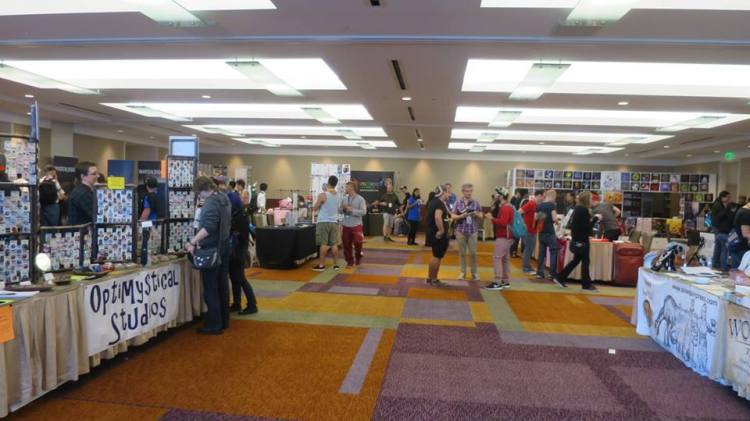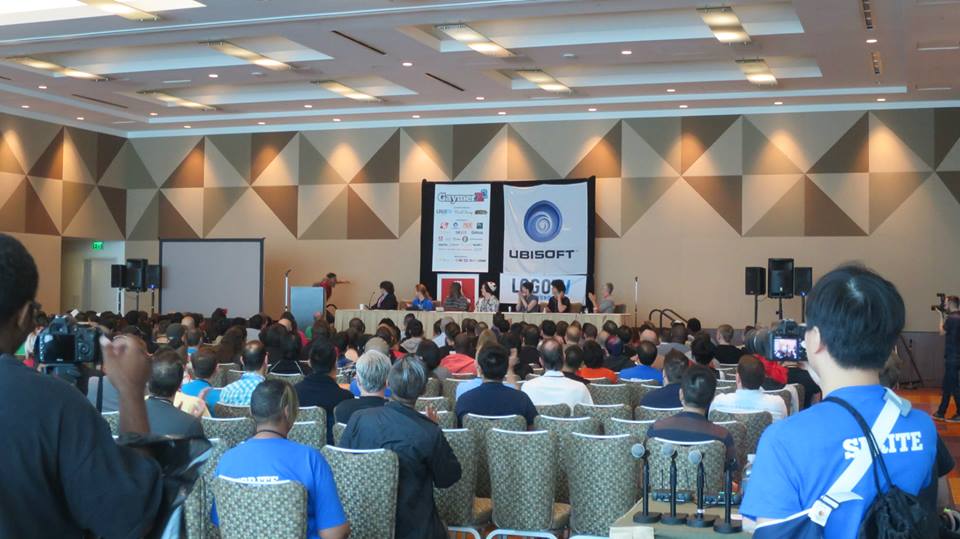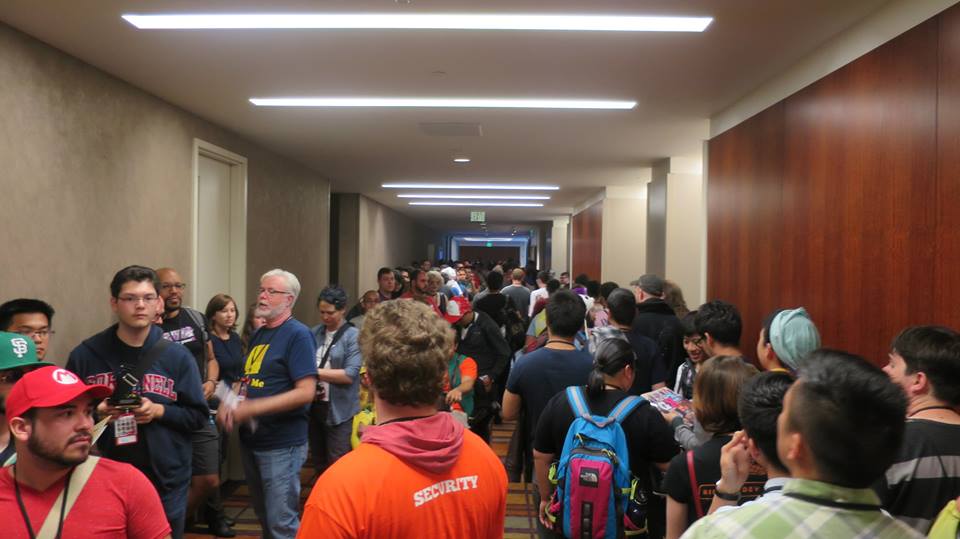UPDATE (8p.m. Pacific time): Matt Conn reestablished the death of GaymerX on Twitter today when he sent out a message about video game publisher NIS America apparently backing out of a financial commitment to the convention.
This year’s LGBTQIA-focused GaymerX convention carried with it a theme of uphill, Sisyphean struggles.
Most every attendee I spoke with had tales of wading through toxic multiplayer environments and direct, deeply personal attacks on their gender or sexuality. With panels like “Coming Out in the Game Industry,” and “We’re Already Here: Empowering Female and Queer Creative Voices,” a common thread at the show (which ran July 11 through 13 in San Francisco) was of entering and surviving in a space that either doesn’t acknowledge or want you.
After speaking to GaymerX president Toni Rocca, this apprehension seems a realistic one. Her experiences alongside founder Matt Conn in attempting to acquire support for the convention paint a picture of an industry that views LGBTQIA events as panhandling charities.
“It’s difficult to get face time with the right people required to get sponsorship,” said Toni Rocca. “If it wasn’t for the awesome folks at Riot Games and at Mailchimp, I can tell you that GaymerX may not have happened at all.”
Game companies like BioWare, 2K, Ubisoft, and Riot Games did make investments toward GaymerX in the form of booths, raffles, demos, and panels. But according to Rocca, the industry as a whole was almost condescending to the idea of supporting an LGBTQIA-themed event.
“… When we mentioned LGBT at all, half of the companies suddenly started treating us like street canvassers for charities,” said Rocca, “We’re a real convention in San Francisco with an attendance [of] over 2,000 and pretty high-profile guests. I know this is slowly changing, but it’s definitely shocking how slowly it is when you look at it compared to any other industry.”
Rocca continued, “Perhaps if I could do it again, I might just completely not bother with game companies [outside of our current sponsors] and go with other industries. To this day, telling stories of the game industry deeply embarrasses and horrifies anyone I meet outside of it.”
The first GaymerX gained minimal attention with its quick crowdfunding success. Despite a picket threat from the Westboro Baptist Church, the convention made some headlines during its weekend run. But in hindsight, the coverage appears to have been presenting the event as a novelty, at least in Rocca’s eyes. She didn’t have higher hopes for this year, either.
“Frankly, and sadly, last year the con … barely got covered,” Rocca said. “I think … that while many games press organizations now have more progressive writers, the editors and management are often still old guard and either homophobic themselves or under an outdated fear of backlash from their homophobic audience. I’m not entirely certain just how much press we’ll be getting this year, and I’m not really holding my breath.”
The team behind the show announced before the doors even opened that this would be the final GaymerX. The major personal donations from people like Matt Conn that kept the convention’s first year afloat weren’t available this time around. With the lack of industry support and (at the time of writing) continued disinterest from the press, the passion for the space was outstripped by a lack of practical means. Taking a chance on another round of crowdfunding is a risk that neither Rocca nor Conn want to risk.
“To be honest, we’re at a state right now where we simply can’t afford another con, and we aren’t really in the business of making gambles,” said Rocca. “With GaymerX, everything is on stake, everything was always at stake. The problem here is that if we had failed on the first gay gaming convention, we would have failed the people … who are perpetually failed by systems and society. So, they deserve better.”
Events are a tricky cost that many businesses can’t afford. With GaymerX lacking the return of investment of a more trafficked event like Tokyo Game Show or Gamescom, it’s not hard to see why a producer would have crossed it off his list. Word of mouth and good graces can only take you so far toward your bottom line. But to treat those that try toward an ideal, even an unpopular one, with the snide dismissals Rocca described validates on the corporate level the feelings of dismissal many LGBTQIA gamers share.
“I … hope the legacy [of GaymerX] is in the friendships and bonds people created and the hope that things can be good — that they are good sometimes — and that we can keep making things better even if it seems impossible sometimes,” Rocca said. “I think my … last note would be to ask people to fund the things they love. But if you can, it helps a lot, both in finances and in spirits. Even if there’s never another GaymerX, maybe something else will pop up. Be hopeful and work for what you believe in.”
We gamers define most conventions by their levels of excitement. Walking the show floor of the Electronic Entertainment Expo or PAX is like stepping into the world’s biggest arcade. Giant lines of screaming fans waiting to play a demo help validate every hour a developer spends coding or testing the same level for the hundredth time. But GaymerX was always calm. The same people that would tense up while walking through the average gamer crowd and their cat calls lay on the floor gaming, almost inhumanly relaxed by comparison. There was no worry of insults or innuendos, or having an identity invalidated, or feeling like an anomaly in a culture that claims to praise the weirdos and freaks.
GaymerX looked like a space for the minority to feel as secure as the majority. While it lasted.
VentureBeat's mission is to be a digital town square for technical decision-makers to gain knowledge about transformative enterprise technology and transact. Learn More




